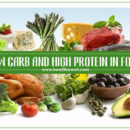Unsaturated Fats and Trans Fats
Many Fats Are Healthy Fats
Far from being the evil substance it has been made out to be, some fat is actually necessary and can be beneficial to your health. Coronary heart disease is increasingly being found to be caused by our modern diet, including the excess consumption of hydrogenated oils, eating too many refined carbohydrates in the form of sugar and white flour, and vitamin and mineral deficiencies.
Antimicrobial fats, such as tropical oils rich in lauric acid, once protected us from the viruses and bacteria that have been associated with the buildup of arterial plaque that leads to cardiovascular disease. These have all but disappeared from the food supply due to people’s unwarranted fear of fat. Unfortunately, most fats can easily become damaged by exposure to heat and oxygen. They are made prematurely rancid by being heated to high temperatures in frying and other high-temperature processes, such as hydrogenation, damaging our cells and leading to arterial plaque buildup.
Fats that are saturated are solid at room temperature and are most often found in meats, dairy products such as eggs, milk, butter, and cheese, and tropical oils like coconut oil. They are very stable and do not normally go rancid, even when heated for cooking purposes. There’s a huge difference between butter and margarine in relation to your health. Butter is a saturated fat, while margarine is made from hydrogenated oils that contain trans fats, which are two different things. Unfortunately, they are usually lumped together into a single category as being bad for you.

Margarine is both bleached and deodorised, and at this point of the processing is usually a light murky brown colour.
There has never been sufficient proof that saturated fat actually causes heart disease. Authors from the Department of Food Science and Technology at the University of California in a review of several studies published in the American Journal of Clinical Nutrition, noted that many researchers have narrowly focused on the theory that these fats raise LDL cholesterol and the risk of coronary artery disease (the so-called “diet-heart” hypothesis).
Saturated fats actually increase levels of HDL, the “good” cholesterol, which helps remove plaque from your artery walls, decreasing your risk of cardiovascular disease. When added to the diet it also reduces the levels of something called Lp(a), that is associated with a greater risk of heart disease. Currently, eating saturated fat is the only way of reducing this substance, as there are no effective medications currently available.
Calcium needs some fat in order to be absorbed into our bones, so low fat or skimmed milk is useless as a calcium source unless you incorporate some into your meal. They are also necessary for good immune function and help to build a healthy nervous system and digestive tract. Fats are responsible for delivering the important fat-soluble vitamins to our cells, such as vitamin A, E, D, and K.
There are three groups of saturated fatty acids: short chain, medium chain and long chain. Unless you consume them in mass quantities, the short and medium chain fatty acids don’t turn into body fat, but are instead used immediately by the body for energy. So fats that contain more short to medium chain fatty acids, such as those found in butter fat and tropical oils like coconut oil, have fewer calories than the same amount of fats with longer chain fatty acids. Healthy Healing Oils’s article on coconut oil provides more information on the health benefits of this saturated oil.

Coconut is often used in sweet confections like cakes and candy bars. Dried coconut can also be found in some Asian curries and soups. Dried unsweetened coconut contains 57 grams of saturated fat per 100 gram serving, or 286% of the DV. The sweetened flake variety of coconut contains half as much saturated fat at 26 grams or 132% DV. The raw coconut meat has 27 grams per 100 gram serving or 148% of the DV.
Almost all foods contain some fat. Even so called fat-free foods like carrots and lettuce contain small amounts. That’s a testament to how important fats are for life. Fat provides a terrific source of energy as well as a great depot for storing it. It is an important part of cell membranes, helping it discern what gets into cells and what comes out
Our bodies can make all the saturated fat we need, so we actually don’t need to eat it. Too much has undesirable effects, (that’s why saturated fat is considered “bad”) especially in cardiovascular disease. In developed countries, saturated fats come mainly from meat, seafood, poultry with skin, and whole-milk dairy products (cheese, milk, and ice cream). A few plant foods are also high in saturated fats, including coconut and coconut oil, palm oil, and palm kernel oil. Saturated fats boost total cholesterol by elevating harmful LDL.. Unsaturated fats are called good fats because they can improve blood cholesterol levels, ease inflammation, stabilize heart rhythms, and play a number of other beneficial roles. Unsaturated fats are predominantly found in foods from plants, such as vegetable oils, nuts, and seeds. Unsaturated fat is much preferable since it lowers the bad cholesterol and raises the good.
As a general rule, it’s a good idea to keep your intake of saturated fats as low as possible. Red meat and dairy fats are the main sources of saturated fat in our diets, so keeping these low is the primary way to reduce intake of saturated fat.

Eating too much red meat, which is high in saturated fat and cholesterol, has long been seen as unhealthy, especially for the heart. The new study, however, is the first to estimate the effect of swapping out red meat on a person’s lifespan




